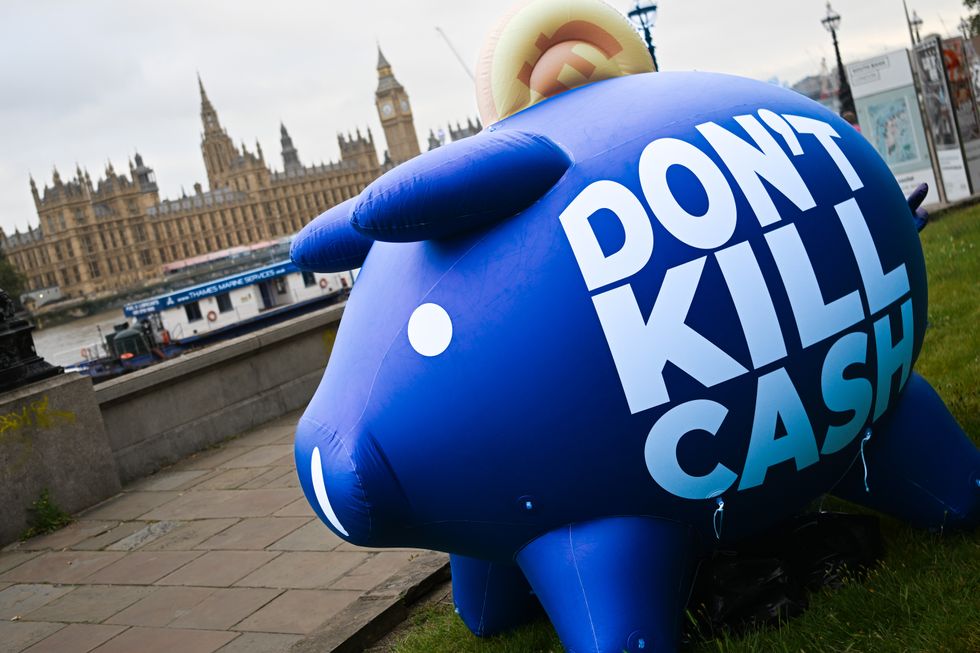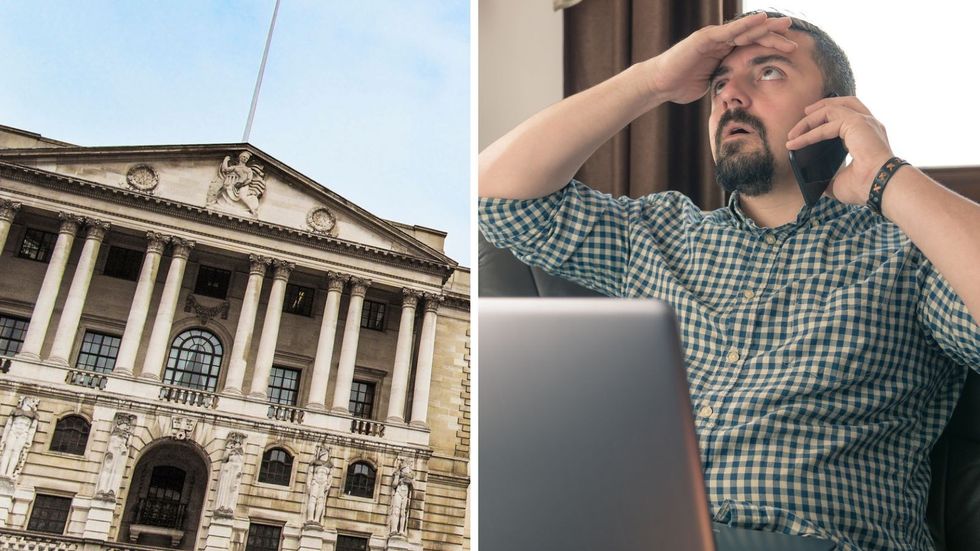The Bank of England is consulting on a new digital currency
PA
While the Bank of England has yet to confirm the digital pound will be introduced, the central bank has provided a roadmap to what the proposal would mean for everyday people
Don't Miss
Most Read
Trending on GB News
The Bank of England has laid out how digital pounds will help you “pay your electrician” and “check your balance”. The central bank has confirmed it will continue with the design phase for a “digital pound” for the UK economy. If it were to go ahead, this form of currency would be a digital form of cash - “a banknote for the digital era” - which is issued by the central bank.
This form of money is commonly known as a central bank digital currency (CBDC) and would be denominated in sterling. Its value would be stable with the value of £10 in digital pounds being the same as a £10 banknote.
In its latest update, the Bank of England confirmed that cash would not be replaced outright and would offer more choice. The central bank also noted that it would operate differently to cryptocurrency or a crypto asset as it issued by the central bank and backed by the Government.
Do you have a money story you’d like to share? Get in touch by emailing money@gbnews.uk.

GB News's Don't Kills Cash campaign has highlighted Britain's concerns over moves to a cashless society
GB NEWSWhile there’s no confirmation of a digital pound being introduced in the near future, the Bank of England and the Treasury gave examples of how someone would use digital pounds ever day. This will give insight to many Britons who are concerned about the introduction of a CBDC as part of the transition away from cash.
The Bank of England has laid out an example of how a day in the life of a digital pound user could go:
- 7am – “Check your balance using your digital pound wallet.
- 10am – “Buy a cup of tea with digital pounds using your smartphone, similar to credit and debit card payments.
- 3pm – “Pay your electrician using digital pounds, with both parties receiving notification of the complete payment.
- 6pm – “Order groceries online and pay for items the digital pound option on the website checkout.
- 8pm – “Transfer money from bank accounts into your digital pound wallet.”
Plans to rollout a “digital pound” continue to be on pause as the Bank of England and Government remain undecided over privacy concerns. The Treasury and central bank’s consultation into the cashless option in February last year took 51,000 responses.
The proposal of a so-called central bank digital currency (CBDC) could see digital currency used by consumers and businesses in the UK, alongside physical cash and bank deposits. Earlier today, it was confirmed a decision would be made in 2025 at the earliest once the design phase is complete.
If the proposal is approved, plans could be drawn up to create a prototype digital bank before any currency may be introduced publicly by the end of the decade. It is reported that work on proposals for the digital currency have cost the Bank of England between £1million to £10million.
The consultation into the cashless currency has gathered 51,000 responses, including members of the public, think tanks, academics and businesses. Many Britons who responded to the survey have voiced their concerns about whether a digital pound would infringe over their existing rights. GB News has previously covered the concern people have with the transition to a cashless society.
LATEST DEVELOPMENTS:

A digital pound has worried many people who contributed to the Bank's consultation
GETTY
This is primarily due to the fact that the digital currency would be issued and held by the Bank of England. In its response, the consultation stated: “The Bank and HM Treasury recognise the strength of feeling on these matters and the need to build public trust in a digital pound.”
New legislation would need to be introduced before the launch of a digital pound to protect peoples’ personal data from being accessed by the state and the Bank, according to the Government. Such legislation would not be introduced until next year.
As it stands, it is not expected that the currency will pay interest in the early days of any potential rollout, and an initial limit of between £10,000 and £20,000 on how much someone can hold is expected.
On the consultation, Bim Afolami, the Economic secretary to the Treasury, said: “We are at an exciting time of innovation in money and payments, and we want to ensure the UK is ready should a decision to build a digital pound be taken in the future.
“This is the latest stage in our national conversation on the future of our money – and it is far from the last. We will always ensure people’s privacy is paramount in any design and any rollout would be alongside, not instead of, traditional cash.”
Sarah Breeden, deputy governor for financial stability at the Bank of England, said: “We know the decision on whether or not to introduce a digital pound in the UK will be a major one for the future of money. It is essential that we build that trust and have the support of the public and businesses who would be using it if introduced.”








